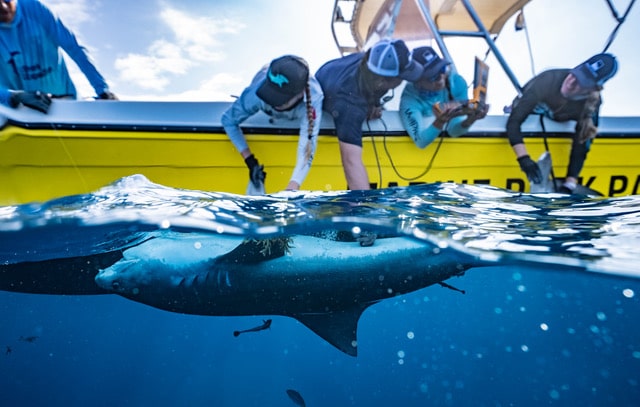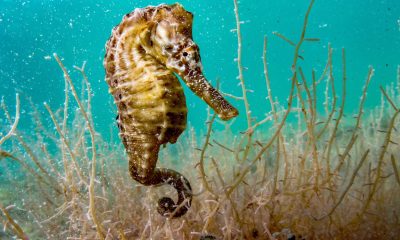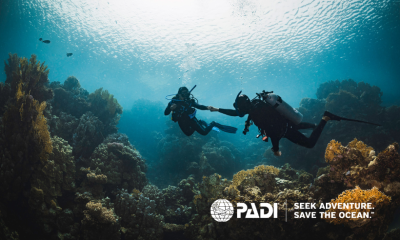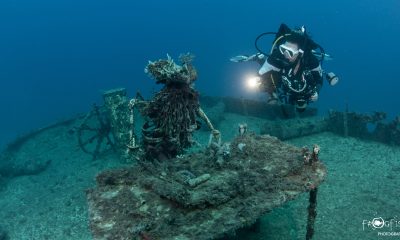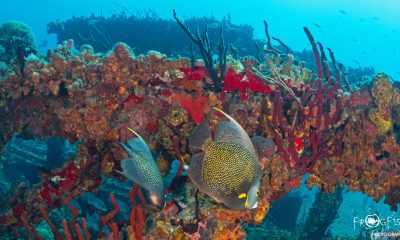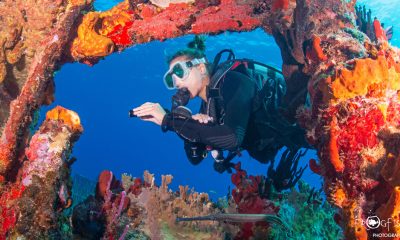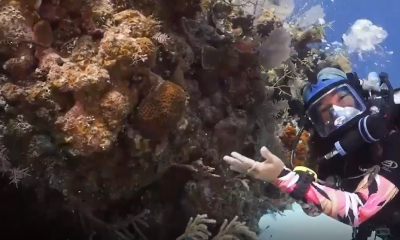News
Expedition on the Saba Bank to Enhance Tiger Shark Protection
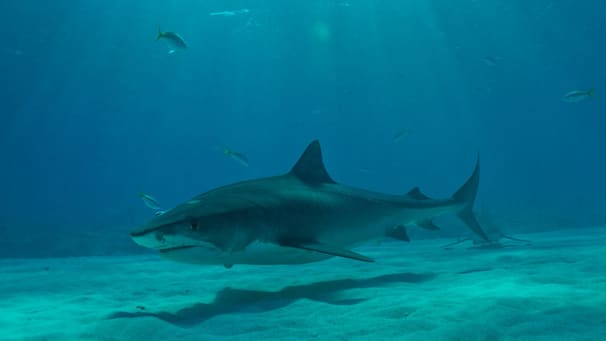
This August a team of researchers will spend a week on the Saba Bank investigating the life-cycle of tiger sharks. Researchers will investigate the migration routes, where and when tiger sharks breed so they can protect them better within the Dutch Caribbean’s Yarari Marine Mammal and Shark Sanctuary as well as beyond. In this expedition members from the Saba Conservation Foundation (SCF), Nature Foundation St. Maarten (NFSXM), St. Eustatius National Parks (STENAPA), STINAPA Bonaire, the Aruba National Parks Foundation (FPNA), the Dutch Caribbean Nature Alliance (DCNA) and World Wildlife Fund for Nature the Netherlands (WWF-NL) will participate.
In 2016, the Saba Conservation Foundation, Nature Foundation St. Maarten, and Sharks for Kids partnered together as part of DCNA’s Save our Sharks Project funded by the Dutch National Postcode Lottery. Since then, satellite tagging of tiger sharks has been conducted on the Saba Bank and around Sint Maarten. Through this research we now know that tiger sharks in Dutch waters travel throughout the Caribbean basin, with most of these tagged sharks being sexually mature females. During the upcoming expedition the researchers aim to not only tag and track more tiger sharks to further investigate the life cycle, but they will also measure if and how large the pups inside pregnant tiger sharks are. This will help to determine if the Saba Bank is in fact a breeding ground for tiger sharks, one of the main goals of the expedition.
The other objective is to see where these transboundary sharks migrate to in order to better understand the importance of the Yarari Marine Mammal and Shark Sanctuary and protect other geographical areas. The Yarari Sanctuary was established on September 1, 2015 and aims to protect marine mammals, sharks, and rays throughout the waters of Bonaire, Saba, and since September 2018, St. Eustatius. Collaboration between not only the six Dutch Caribbean islands but countries across the wider Caribbean as a whole is necessary in order to protect and conserve these essential species and ecosystems. Therefore the Caribbean Shark Coalition was recently formed to collaborate better in the entire Greater Caribbean region.
Celebrated on July 28 each year, World Nature Conservation Day acknowledges that a healthy environment is the foundation for a stable and healthy society. This includes a healthy ocean which, undoubtedly, depends on sharks. Sharks are large top predators that serve a critical role in maintaining balance in the marine ecosystem. Sharks help keep their prey population healthy by eating the weak while also affecting their prey’s distribution. In healthy oceans, sharks help to maintain stable fish stocks and healthy coral reefs and seagrass beds, which is important for the fisheries and the economy of the islands.
The Tiger Shark research expedition is coordinated by the DCNA and generously funded by WWF-NL through the Biodiversity Funds and the Dutch National Postcode Lottery.
For more information on the Pregnant Tiger Shark Expedition, follow the participating organizations on Facebook, Instagram or DCNA’s website.
Header image: Jarrett Corke (WWF Canada)
News
Seahorse National Park announced on Eleuthera in The Bahamas
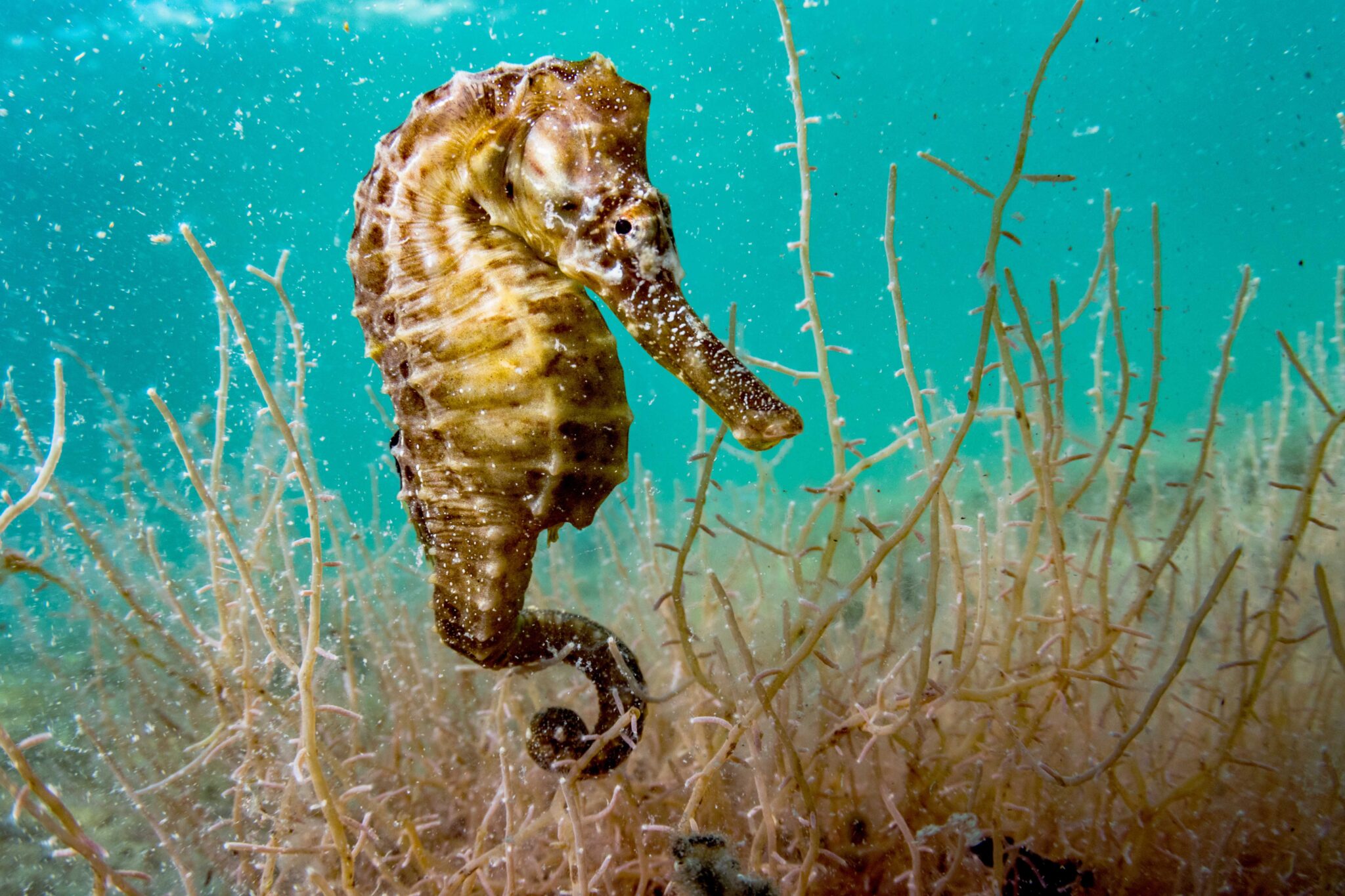
This week has seen the announcement of the designation of Seahorse National Park at Hatchet Bay Cave and Sweetings Pond on Eleuthera. This monumental announcement comes after years of efforts from the BNT and its partners in advocating for the protection of Sweetings Pond and its surrounding areas as an official national park under the BNT’s management.
Sweetings Pond is a large, land-locked saltwater pond in Hatchet Bay, Eleuthera. It has many unique natural features, but the most notable of them all is its incredible seahorse population, which is believed to be the densest population of seahorses in the world. The new 548-acre national park protects the entire one-mile-long pond and the surrounding terrestrial area. The land surrounding Sweetings Pond is a blend of intact coppice, mangroves, and farmlands. In addition, the new national park includes the extensive Hatchet Bay Caves system. This historic cave system is a popular attraction and contains a number of impressive geological features. It is one of the longest dry cave systems in The Bahamas.
Since 2014, the BNT has been leading efforts to have the area declared as a national park. This included years of public outreach and stakeholder consultations in communities across Eleuthera; education presentations in local schools; science and research efforts; and engaging consecutive government administrations. In 2018, the BNT submitted the “20 by 20 Marine Protection Plan” to the government, which included the recommendation to declare Sweetings Pond and other areas in The Bahamas as protected areas.
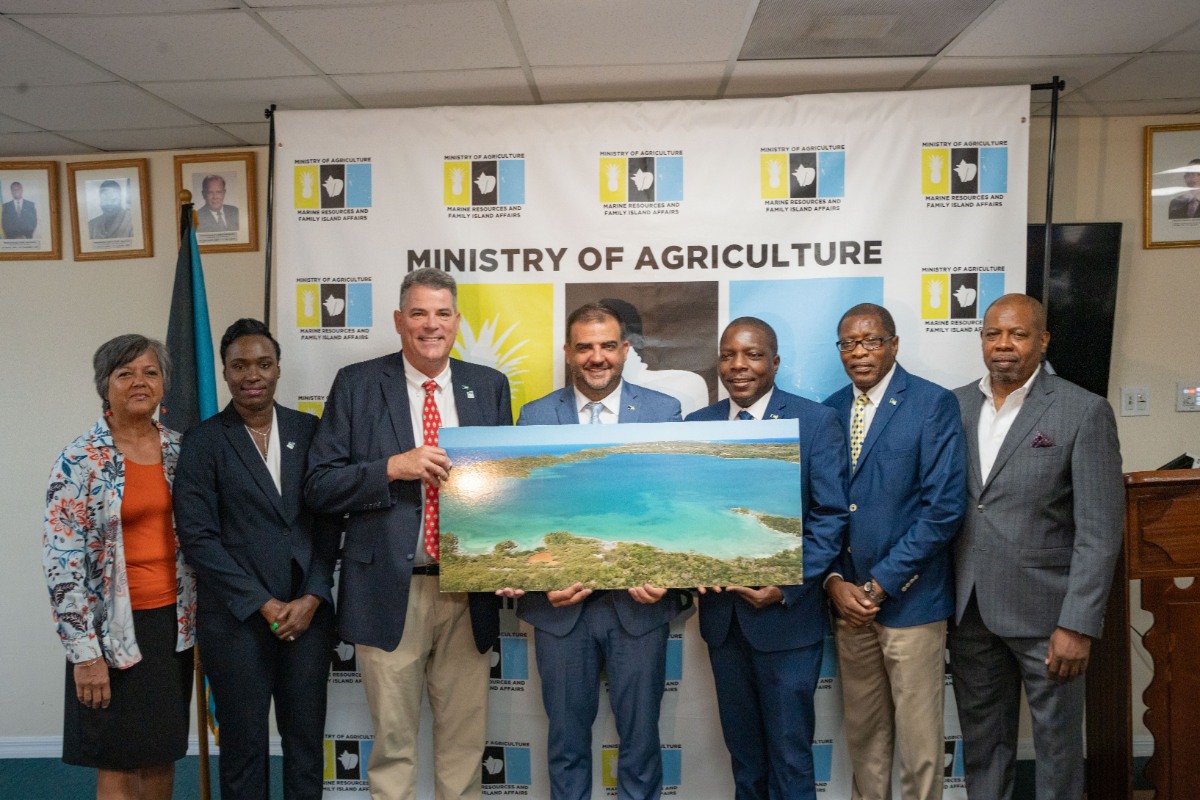
During the lease signing ceremony for Seahorse National Park, Minister Clay Sweeting, said, “This lease agreement for Sweetings Pond has been a long time coming. It represents a milestone in our journey towards sustainable development. It symbolises our collective responsibility to safeguard our natural heritage and create a harmonious relationship between economic progress and environmental preservation.
“I would like to express my gratitude to all stakeholders in this process of drafting and finalising this lease agreement. Their dedication, expertise, and commitment has been crucial in ensuring that this agreement falls in line with our vision of creating a thriving ecosystem while promoting responsible usage. Let us continue to preserve the jewel that is Sweetings Pond for many generations to come.”
The BNT invites the public to stay tuned for more news about its plan for the country’s newest national park: Seahorse National Park at Hatchet Bay Cave and Sweetings Pond!
To learn more about the role the BNT plays in managing terrestrial and marine national parks, conserving wildlife, and informing environmental policy, please visit its website: www.bnt.bs
Follow/subscribe to its various social media channels: Facebook, Instagram, Twitter, and YouTube.
Banner Image: A lined seahorse (Hippocampus erectus), female, clining to algae in an alkaline pond in The Bahamas by Shane Gross
News
PADI Club invites Ocean Lovers on exclusive dive trip to Bonaire this September
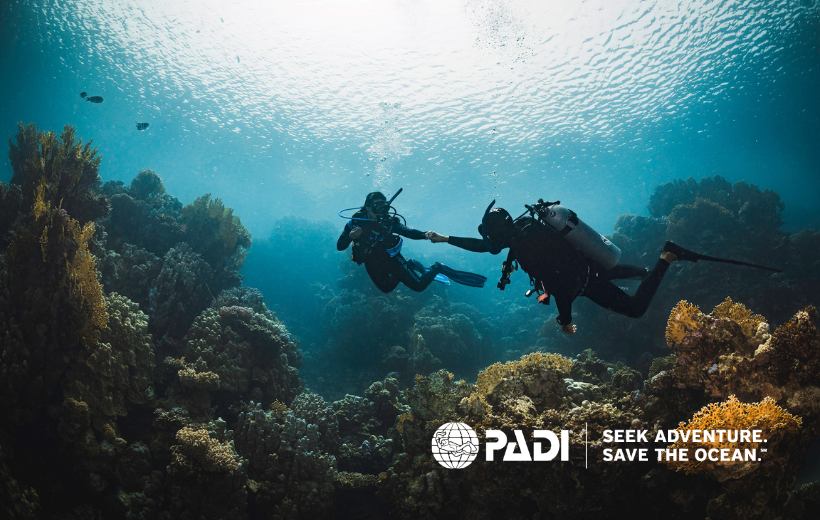
Following the popularity of the PADI Club trip to Belize at the end of July, a second “dive trip of a lifetime” has just been announced by PADI Club to Bonaire this September 23-30, 2023.
Offered exclusively for PADI Club members as part of their yearly benefits, attendees will get to seek adventure while staying at the all-inclusive Buddy Dive Resort, one of PADI’s premier members on the island. Other PADI Members in Bonaire – including Toucan Divers, Divi Flamingo, Wanna Dive, Dive Friends and Scuba Do – will also be hosting various dive experiences throughout the week.
“Bonaire is a unique and beautiful gem in the Dutch Caribbean and we want to show our Club Members this little island looms large as a dive destination,” says Zach Pavkov, PADI Club Operations Manager. “This trip offers participants a chance to not only explore a world-class diving destination but do so through some of the very best PADI Operators.”
PADI Club members will receive a generous discount for this seven-day diving adventure, with packages starting at $1,739 per diver for double occupancy.
Included in the package are:
- social events that include hosted dinners, cocktail parties and live music
- transportation in Buddy Dive Resort’s famous pick-up truck
- daily shore diving and boat diving
- accommodation, with the option to share a room with another solo diver or rent out one, two and three-bedroom apartments to host larger groups of divers
- surface interval activities that include PADI Seminars and island excursions like hiking and bird-watching.
“Because the water surrounding Bonaire has been an established marine park for 44 years, Bonaire is now a top-ranked destination with abundant marine life that includes scorpionfish, flounder and frogfish, moray eels, hawksbill turtles and eagle rays, ” continues Pavkov.
With limited spots available, the list of participants will be decided on a first-come, first-served basis. Those who are not yet PADI Club Members but are interested in joining the trip can sign-up, which will also give them access to:
- 20% of PADI eLearning® programs and PADI Gear™
- a free ReActivate® online refresher
- a free DAN® Prepared Diver course
- a subscription to Scuba Diving® magazine
- access to the PADI Club Celebrity Speaker Series webinars
- brand partner benefits from GoPro, Uber, Salt Life and more
To further support ocean lovers to create positive ocean change, five percent of the PADI Club membership fee will go towards supporting conservation efforts around the globe.
“PADI Club benefits are designed not just to empower divers to explore the ocean, but also enable them to play a pivotal role in saving the ocean too,” says Pavkov. “This year’s additional expedition to Bonaire gives our community the chance to come together and explore our shared blue planet in a truly meaningful and connected way.”
Click here to sign up for PADI Club and reserve your spot here to join the Bonaire dive trip.


